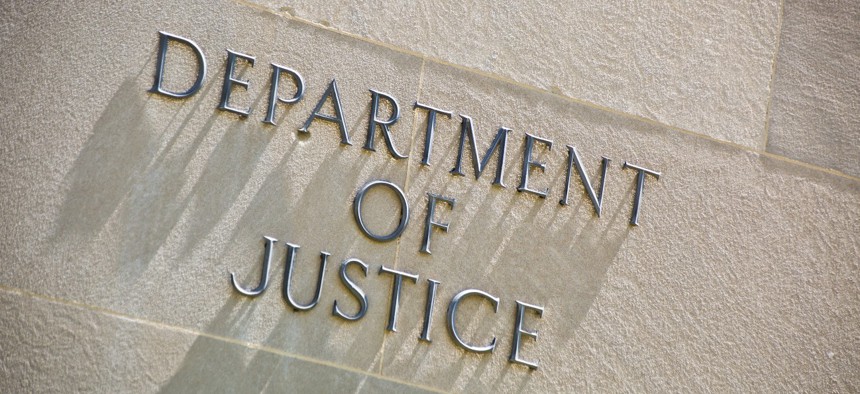
There have been questions about DOJ’s and the FBI’s responsiveness to congressional requests for information. YinYang / Getty Images
Congressional Oversight Involves Many Letters. DoJ Should Keep Better Track of Them, a Watchdog Says.
There were also areas the watchdog could not review due to incomplete information.
The Justice Department could better track and monitor its responses to the hundreds of pieces of correspondence from lawmakers it receives each year, as that helps with part of Congress’ vital oversight function, according to a watchdog.
“The comptroller general of the United States has reported that diligent congressional oversight can greatly enhance program operations by focusing on program and policy implementation,” the Government Accountability Office said in a report issued on Wednesday. “In recent years, certain members of Congress and committee leaders have raised questions, including during congressional hearings, about DOJ’s and the FBI’s responsiveness to congressional requests for information.” This is why the watchdog took up the review.
Justice’s Office of Legislative Affairs is in charge of issuing certain replies to members of Congress and working with departmental components that have their own legislative offices on some responses. This includes the FBI; Bureau of Alcohol, Tobacco, Firearms and Explosives; Federal Bureau of Prisons; Drug Enforcement Administration; and U.S. Marshals Service. The Justice Department executive secretariat manages executive-level correspondence for department leadership as well as oversees the department’s correspondence management system.
“Certain components have prioritized the quality of the information used in their processes to manage responses to congressional correspondence, such as systematically recording accurate details on the receipt, disposition and timeliness of responses,” said GAO, citing examples from the FBI and DEA.
The DOJ's executive secretariat and Office of Legislative Affairs “would benefit by implementing similar processes, including systematically maintaining readily available, accurate and complete information in the DOJ department-wide correspondence management system, developing guidance on congressional correspondence data quality, and developing department wide-performance measures with goals,” said GAO. The review spanned 2012 to 2021 and GAO found the partial data the Justice Department was able to find from this time period unreliable.
GAO’s review did not include the substance of the Justice Department’s responses to Congress.
Additionally, “we were unable to report on how DOJ prioritized different types of congressional requests, the variation in timeliness among components, and response rates for congressional questions for the record and letters over time due to DOJ, in some cases, not maintaining certain data elements or omitting certain data elements from DOJ components’ responses to our request for information,” said GAO.
The Justice Department generally agreed with GAO’s recommendations and outlined the work it is doing already to address the issues.
“The department works to accommodate Congress as much as possible in a timely manner without compromising the department’s other responsibilities,” Carlos Uriarte, assistant attorney general, wrote to GAO officials in response to the report. “The department’s current internal correspondence management system meets the department’s core needs…However, the department recognizes that it can improve its policies, procedures and technology to ensure that its correspondence management system is robust and effective.”
The Office of Legislative Affairs has about 27 staffers to respond to congressional correspondence, in addition to other duties, he noted. President Biden’s budget request for fiscal 2023 requests a $1.1 million increase for the office to bring on 12 additional full time equivalent positions, which acknowledges the “current staffing is not adequate to meet the department’s need.”







